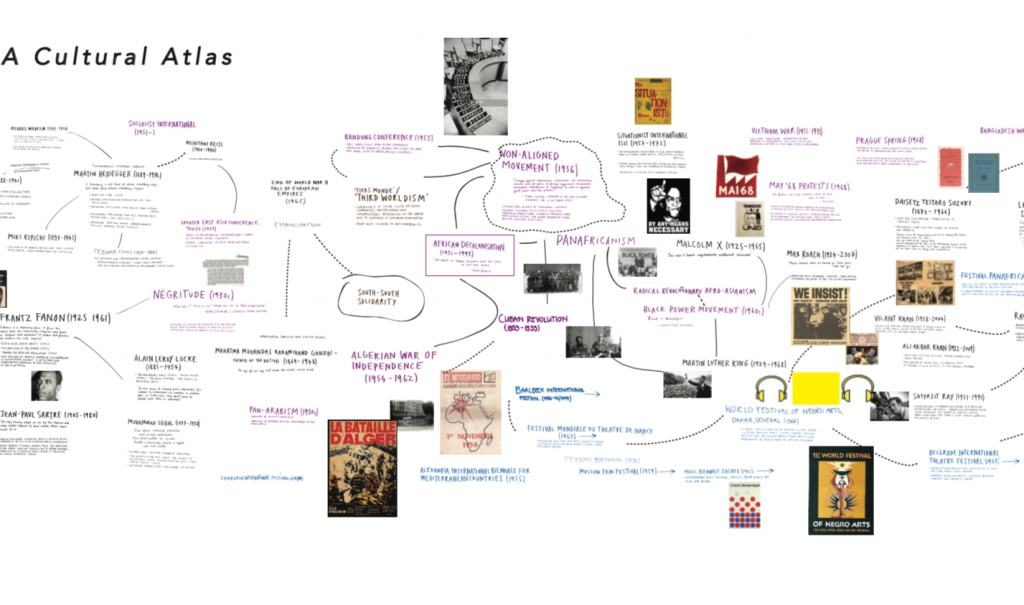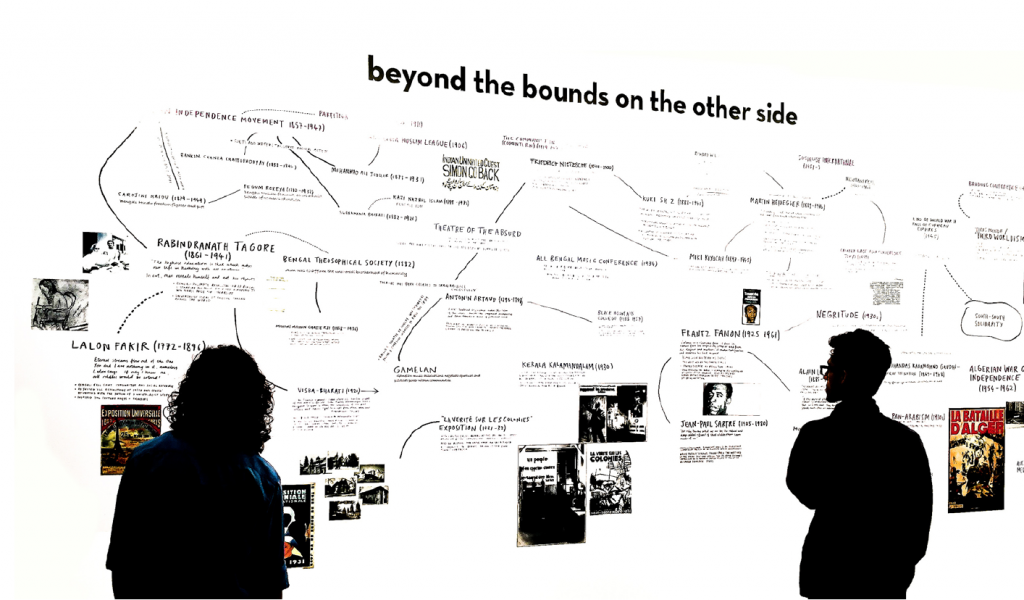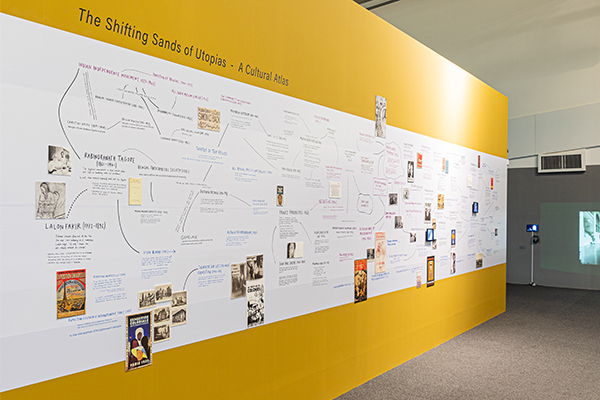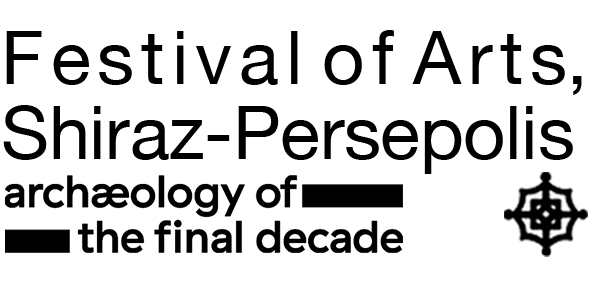
A Cultural Atlas: The Shifting Sands of Utopias takes the Festival of Arts, Shiraz-Persepolis (1967-1977) as a case study and point of departure. The Atlas is a panorama of the intellectual history of the twentieth century. Reflecting utopian and emancipatory intellectual artistic, political, ethical, and spiritual international networks, it revisits the intersection of modernism, art and revolution through radical aspirations of the twentieth century.
The Cultural Atlas traces a complex space of international modernity through which knowledge was exchanged across alternative (often non-European) plateaus. This process of global ‘reorientation’ takes us through a reconstruction of the gaze – subverting the single ‘reading’ of West to East into a more cyclical model, engaging in cultural, philosophical and political negotiations from East to East, East to West, South to East, South to South – constructing a panoramic exchange of global philosophical and artistic discourse.

The interactive and ongoing Cultural Atlas conjures a fragmented history of the long twentieth century through the ambitions and contradictions of countless utopian universalist episodes and ideals: transcendental internationalisms; radical liberations; emancipating solidarities.
By the middle of the last century, the demise of the old European empires revealed a new horizon of opportunities and encounters for people and cultures across the world. The Atlas serves as an evocation of the constantly evolving dreams and possibilities that emerged and dissolved during the period.
Intending to be a living object the Cultural Atlas mutates with each re-instalment. It remains a deliberately unfixed, unfinished and unstable process – like the ideas and connections it conjures – intending to be animated by the spaces that it arrives in. To that effect, the Cultural Atlas is a live object. Audiences are encouraged to interrupt, intercept and shape the colour and tone of its evolution, and to expand its cosmos by proposing new links and initiating new constellations, unearthing the shifting sites of utopias across the twentieth century, based on their local context and experience.

